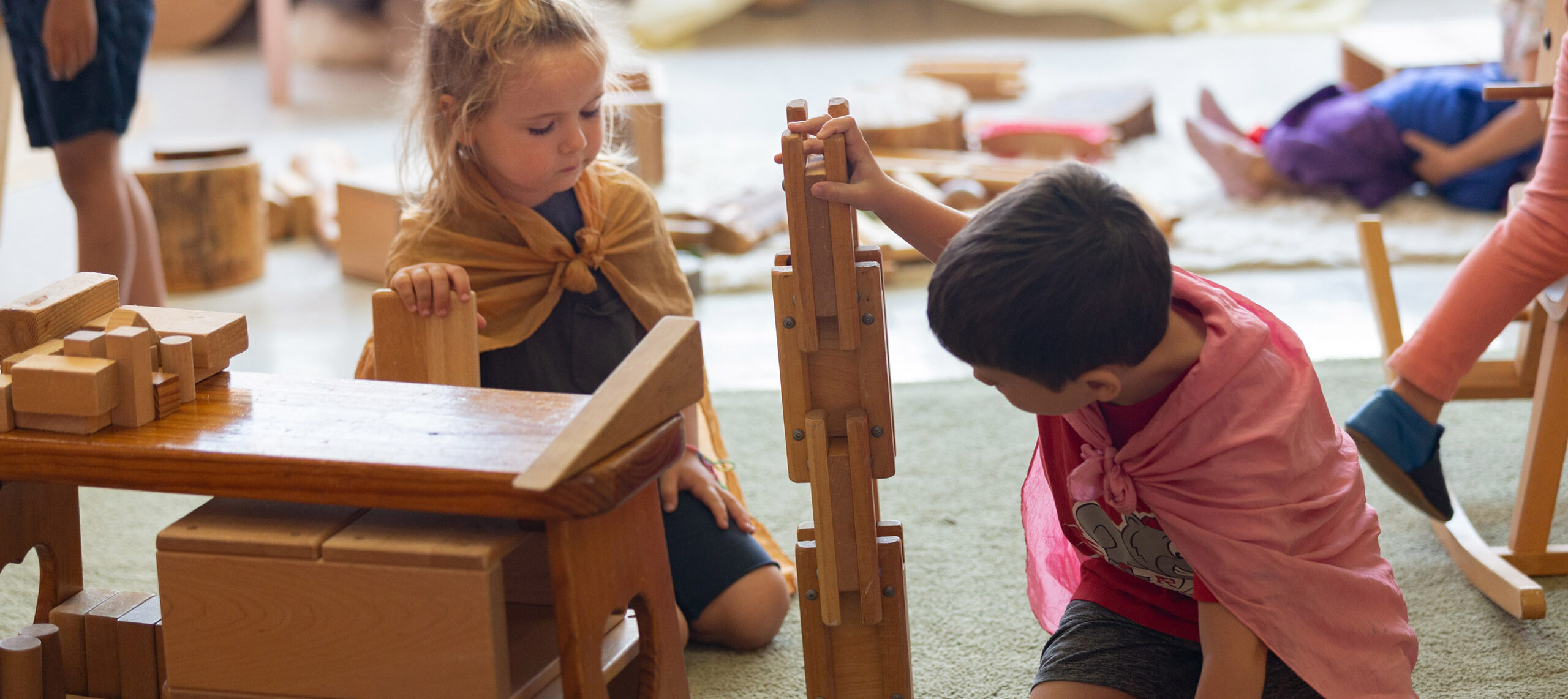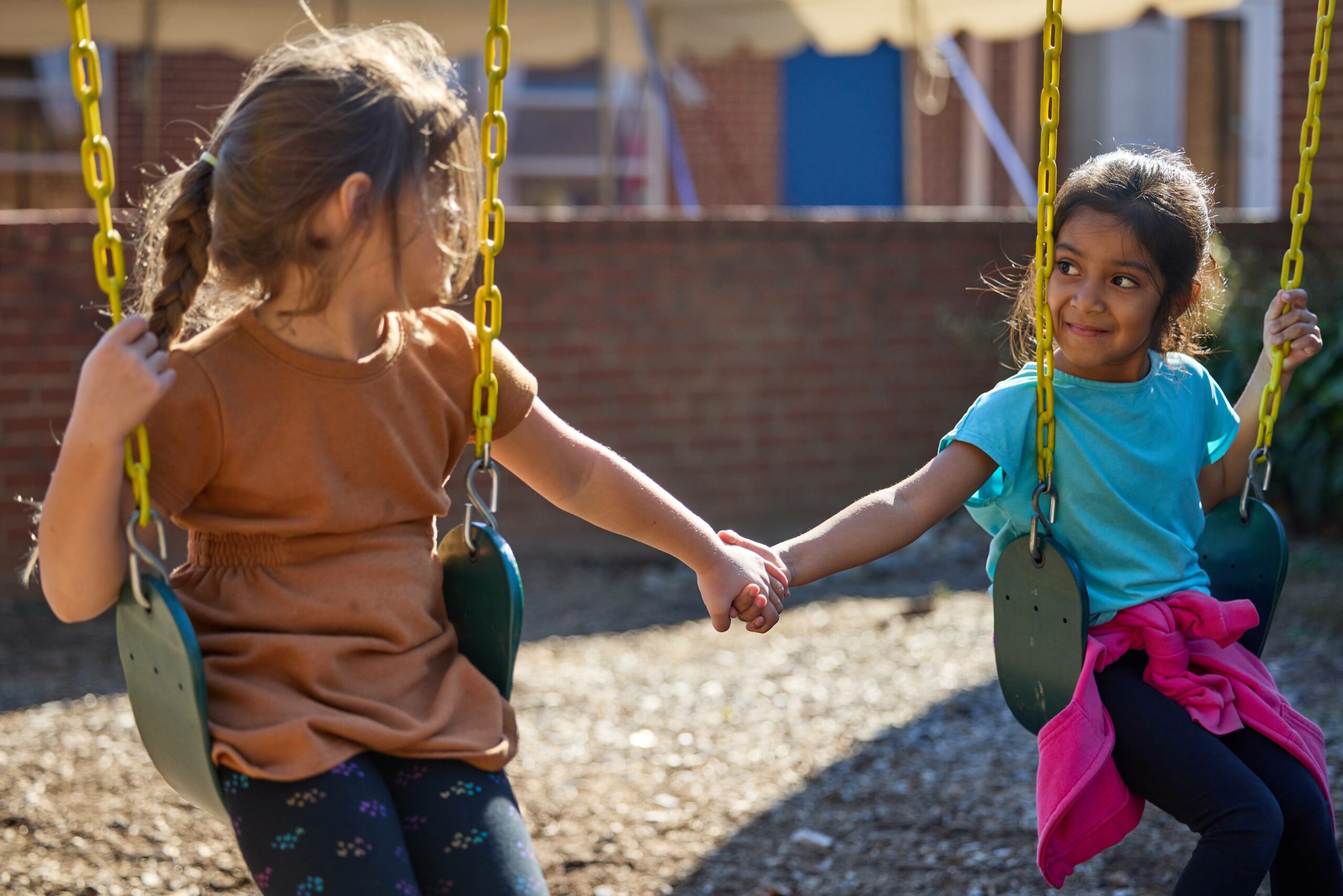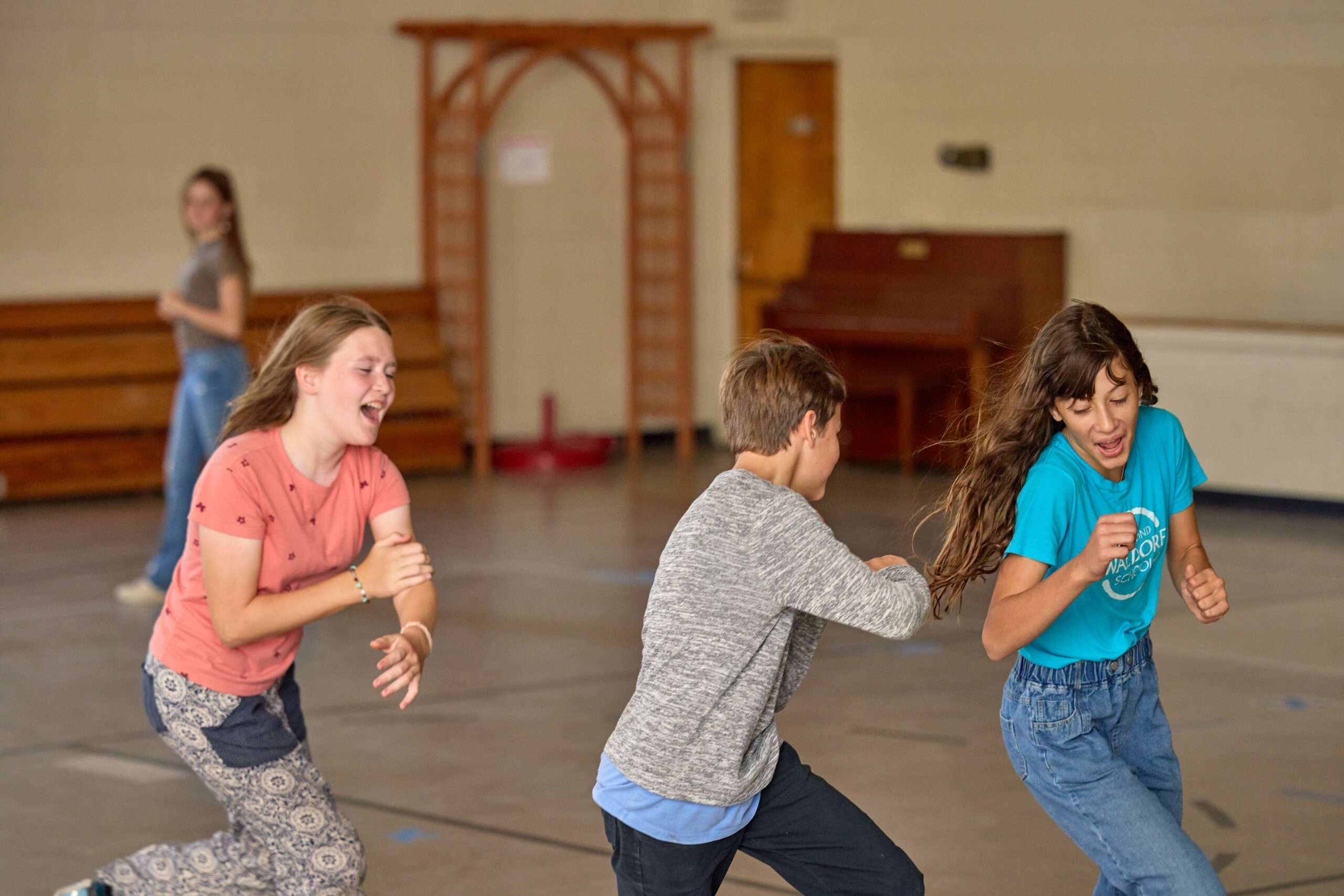The Value of an Unhurried Childhood
A recent New York Times article highlighted the importance of giving children an unhurried childhood, without an overpacked schedule of extracurricular activities and excessive homework. The pressure on Gen Z to excel at a young age has led to decreased mental health and increasing struggles at school. Waldorf Education takes a balanced approach, with plenty of time for children to play and explore, while also providing a joyful and well-rounded education that instills essential life skills, sparks a lifelong love of learning, and prepares them for a successful future.

The mentioned New York Times article highlighted the importance of giving children an unhurried childhood, without an overpacked schedule of extracurricular activities and excessive homework. The pressure on Gen Z to excel at a young age has led to decreased mental health and increasing struggles at school. Waldorf Education takes a balanced approach, with plenty of time for children to play and explore, while also providing a joyful and well-rounded education that instills essential life skills, sparks a lifelong love of learning, and prepares them for a successful future.
In an era where the pace of life seems perpetually set to fast-forward, the essence of childhood—a period traditionally marked by exploration, imagination, and growth at a natural pace—risks being overshadowed by the rush to achieve. This phenomenon has been highlighted in discussions around child rearing and education, notably in a New York Times article that sheds light on the downsides of an overpacked schedule for children. The pressures facing Generation Z, from excessive homework to a relentless array of extracurricular activities, are not just altering the landscape of childhood but are also contributing to a notable decline in mental health and academic engagement among the young.
Against this backdrop, Waldorf Education emerges as a beacon of hope for those advocating for an unhurried childhood. Founded by Rudolf Steiner in 1919, Waldorf Education is built on the premise that education should be holistic—nurturing the mind, body, and spirit of each child. At its core, this educational approach seeks to foster a balanced development, allowing children the space and time to grow at their own pace, explore their interests deeply, and develop a genuine love for learning. We believe that children will thrive when given lots of time for creative, imaginative play. Building strong social and emotional skills, and learning through imitation and through direct experience, are the foundation of our Early Childhood classrooms.


So how successful are Waldorf school graduates in higher education and beyond? A Research Bulletin entitled Standing Out Without Standing Alone: Profile of Waldorf School Graduates encapsulates the results of the comprehensive Survey of Waldorf Graduates, Phase II. The survey suggests that a majority of Waldorf school graduates share the following characteristics:
- They value the opportunity to think for themselves and to translate their new ideas into practice.
- They practice life-long learning and have a highly developed sense for aesthetics.
- They value lasting human relationships.
- They seek out opportunities to be of help to other people.
- They sense that they are guided by an inner moral compass that helps them navigate the trials and challenges of their professional and private lives.
- They carry high ethical principles into their chosen professions.
The Importance of Play and Exploration
One of the central tenets of Waldorf is the emphasis on play and exploration as critical components of learning. In contrast to traditional education models that prioritize academic achievements from an early age, Waldorf schools provide ample time for outdoor play, artistic activities, and hands-on learning experiences.We believe that students who are exposed to world cultures through story and sensory experience will become thoughtful, clear-thinking adults who understand and take an interest in the world and its people. This approach is grounded in the understanding that play is not merely a break from learning but a fundamental way in which children learn and make sense of the world around them.
By allowing children the freedom to engage with their environment, Waldorf Education supports the development of creativity, problem-solving skills, and social-emotional competencies. These are essential life skills that equip children to navigate the complexities of the modern world with resilience and adaptability.
A Joyful and Well-Rounded Education
Waldorf schools aim to instill a lifelong love of learning through a curriculum that is as diverse as it is comprehensive. Subjects are taught in a way that connects them to the students’ lives, making learning relevant and engaging. From the arts to sciences and humanities, every discipline is approached with the goal of awakening students’ curiosity and enthusiasm. Laboratory
Moreover, Waldorf Education places a strong emphasis on the development of moral and ethical values. Through stories, community service, and the cultivation of empathy and respect, children learn the importance of contributing positively to society and the environment. This holistic approach ensures that students are not only well-prepared academically but are also thoughtful, compassionate individuals.
Preparing for a Successful Future
Critics of slower-paced educational models often express concern about whether such approaches adequately prepare children for the “real world.” However, evidence suggests that Waldorf graduates are well-equipped for future success. With strong critical thinking skills, a capacity for innovative problem-solving, and a deep sense of social responsibility, Waldorf alumni are poised to make meaningful contributions to society.
Furthermore, by fostering resilience and a healthy balance between work and play, Waldorf Education helps mitigate the mental health challenges prevalent among today’s youth. Graduates emerge as well-rounded individuals who value lifelong learning and are capable of pursuing their passions with vigor and determination.
In a time when the rush to succeed threatens the very essence of childhood, Waldorf Education offers a compelling alternative. By valuing the unhurried child, prioritizing play and exploration, and providing a joyful and well-rounded education, Waldorf schools nurture not just successful students, but happy, healthy, and holistic individuals ready to thrive in an ever-changing world. As we reconsider the pressures we place on our children, perhaps it’s time to embrace the wisdom of an educational approach that has been championing the value of an unhurried childhood for over a century.
Want to Learn More?
We would love for you to explore the Waldorf approach! Sign up for a tour, or watch our school video where students talk about life at Richmond Waldorf School. Get to know us and see if RWS is right for your child.
At Richmond Waldorf School, we recognize that our student’s physical, social, and emotional well-being are a key part of their ability to learn and thrive. We look forward to meeting you and sharing more information about Waldorf education.
Valerie Hogan
Enrollment & Marketing Administrator
| 804-377-8024 ext 3
Richmond Waldorf School is a non-profit, private school in Richmond, Virginia offering Waldorf education for grades Pre-K – 8th grade.

